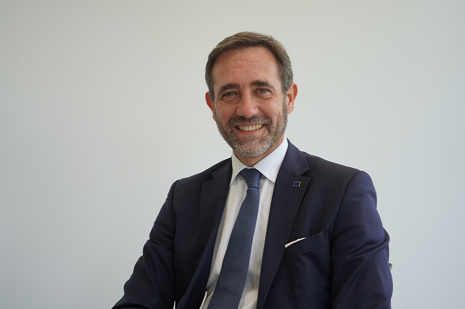
From the package of measures comprised in the European Union's ''Fit for 55'' initiative to the Fly Net Zero 2050 engagement including Sustainable Aviation Fuels (SAF) and the Single European Sky’s critical role, José Ramón Bauzá, MEP in the Renew Europe parliamentary group, shares his vision on some of the most important aviation issues in Europe.
(The interview was conducted during summer 2022 in Spanish. This version has been translated and shortened).
The ''Fit for 55'' initiative is presented as a tool that could significantly contribute to reducing Europe’s carbon footprint but contains certain points that could have negative effects for both the environment and the industry. What has transpired from the file discussions in the Parliamentary Commissions?
They have been and will continue to be very complicated. Here I must respond as the political liberal that I am: I don't believe in taxation and penalization. I believe in research and investment. If a company, for example, has to pay 500 million euros in fees or taxes, I prefer that this amount be used for research and innovation.
We cannot make decisions that are not based on scientific evidence. Companies want to innovate and should not be asked for impossible things. This excessive pressure will lead our airlines to lose competitiveness. Some of the initiative’s objectives are specific to a very small region of the world called Europe, and we want people and companies globally to think the same way Europeans do. Therefore, we should only demand what is achievable, and not ask for the impossible to avoid killing the aviation sector’s competitiveness, which facilitates our mobility and connectivity.
The aviation industry is committed to Fly Net Zero 2050, with Sustainable Aviation Fuel (SAF) representing the main solution to achieve this ambitious target. Today, production levels are still far from industry needs, and prices remain 3 to 5 times higher than traditional jet fuels. How can we solve this?
We all want Sustainable Aviation Fuel to become a viable alternative. Today, that’s still not an option. I have met companies that are investing, innovating, and funding research on this solution. They tell me: “our annual production is marginal. It's not that we don't want to do more, but we cannot make it happen with the raw material currently available nor with the present technological, chemical, and biochemical capacity.”
Some companies’ annual production - technology companies specialized in SAF development- barely cover other companies’ weekly needs! In other words, all the annual available fuel is going to be used in just one week by a single airline, in the best of cases. If things don’t change, we will not meet our objectives.
How do we achieve these? Through technology, engineering, research, and other available solutions. This can only happen through collaboration. Industry and policymakers must work hand in hand to achieve the common objective of carbon net zero, the best option for the environment. If one of the parties runs too fast, the other will be abandoned on the side of the road.
One of the solutions to reduce CO2 emissions is improving routes. We have been promoting the Single European Sky for years, but some States continue to privilege their own airspace sovereignty, making it impossible to realize this solution. Do you think the implementation of the Single European Sky is still feasible?
The Single European Sky (SES) is one of the concepts transferred from one legislature to the next. We at the European Parliament are making all possible efforts to make it happen. From an environmental standpoint, simply liberalizing these restricted areas through the Single European Sky would reduce CO2 emissions by around 10 or 15% depending on the routes. It would also decrease fuel consumption, slash costs, and improve operations by optimizing routes and cutting flight time. It’s all benefits.
As spokesperson for my Liberal group on transport and tourism, SES is one of my personal goals and also one we are working on with all my colleagues from the group. Unfortunately, we face important limitations. This initiative’s approval requires unanimity between three institutions: the European Parliament, the European Commission, and the European Council. We are working on convincing all the parties to reach a common agreement, which understandably represents a difficult task when countries’ airspace identity is at stake. This ultimately makes it impossible for that decision to be taken.
The European Parliament will do what it takes. Those prime ministers and presidents, are calling for the "Green Deal" and "Fit for 55" objectives to be met immediately and at all costs, are the same ones who backpedal when the time comes to make a decision on their airspace. Coherency and consistency are needed. I don't know if it will be feasible or not in this legislature, as we are already past midterm. I honestly don't see it happening easily, but I will do my personal best.
Additional Information: